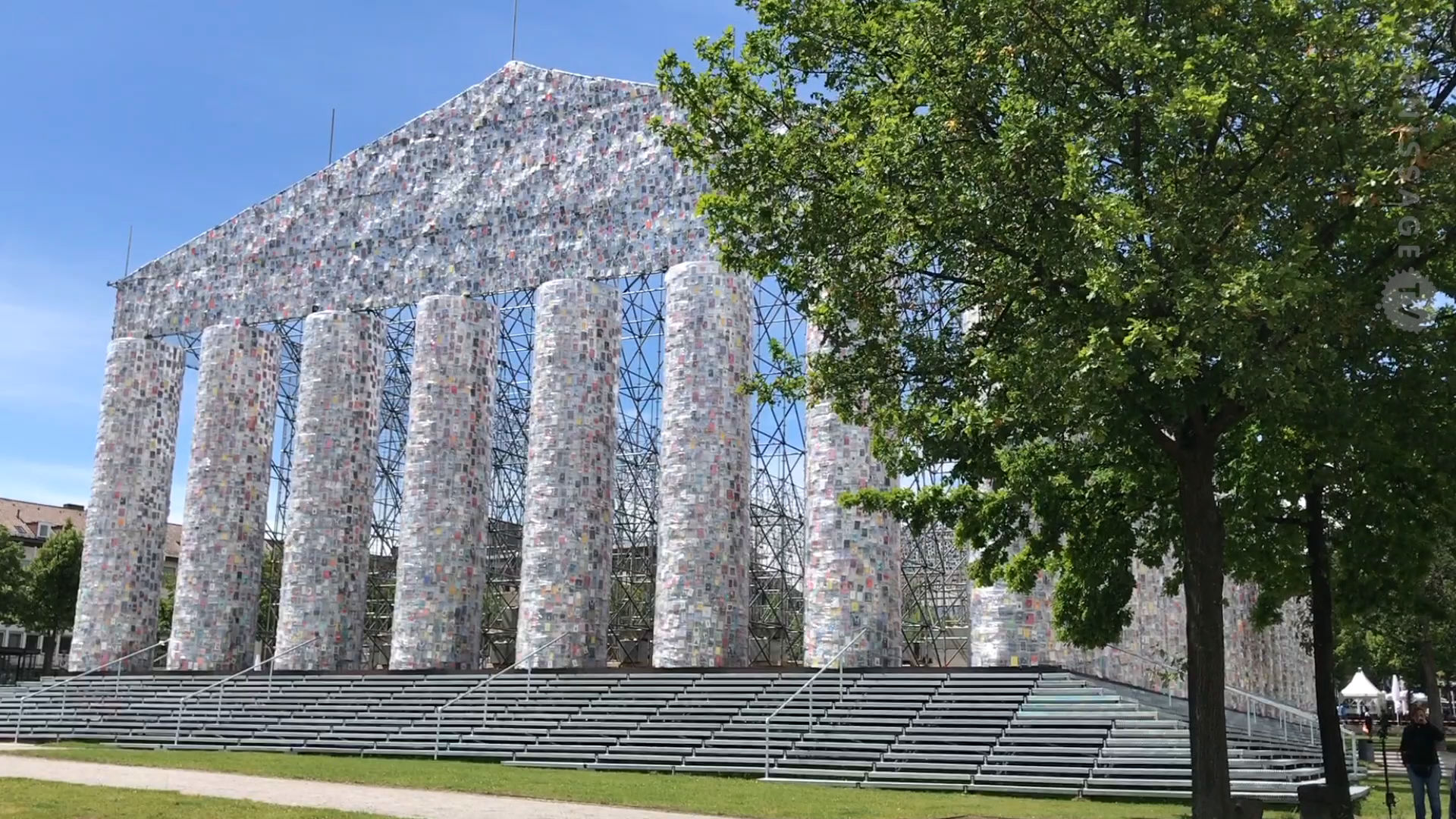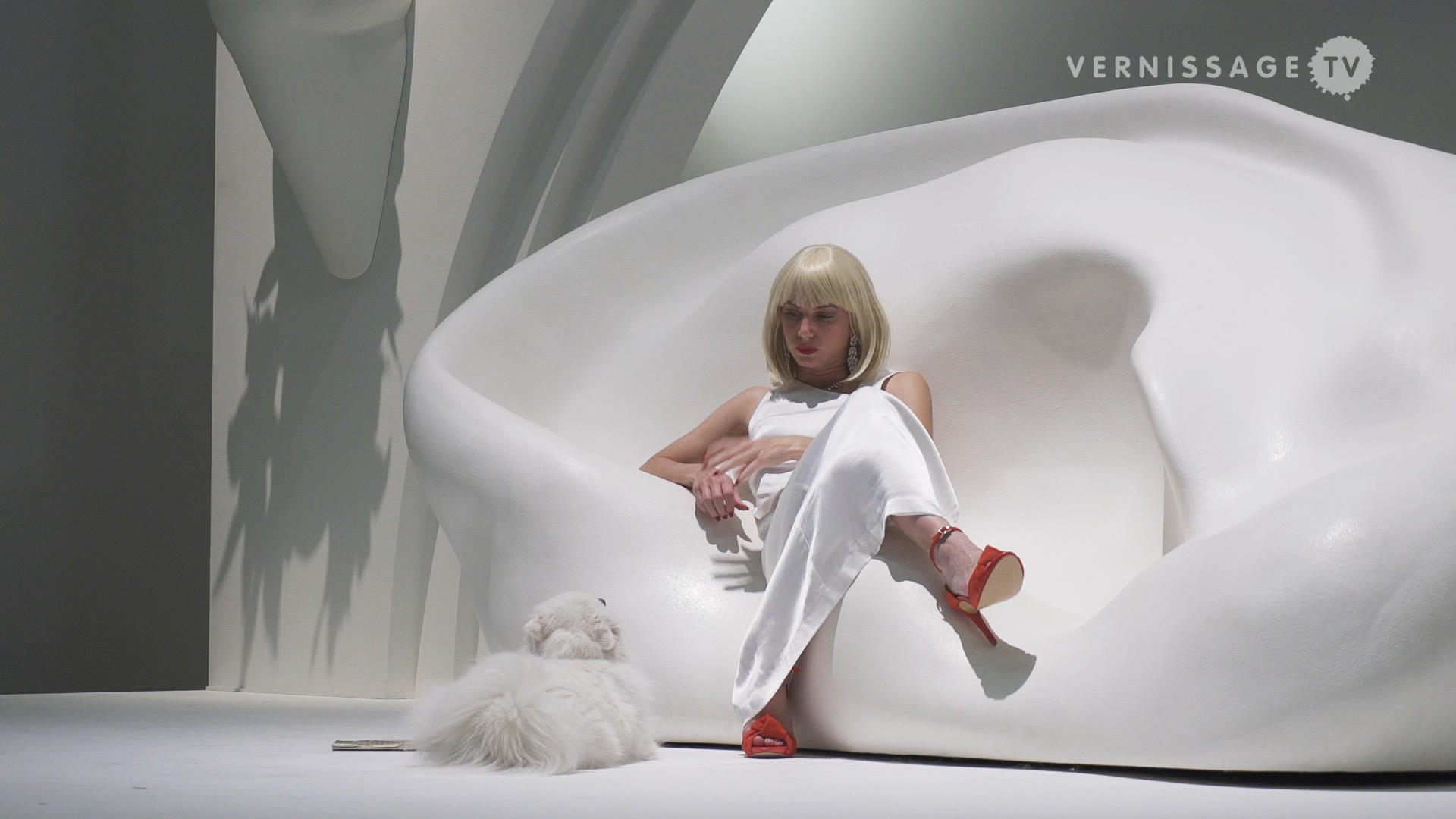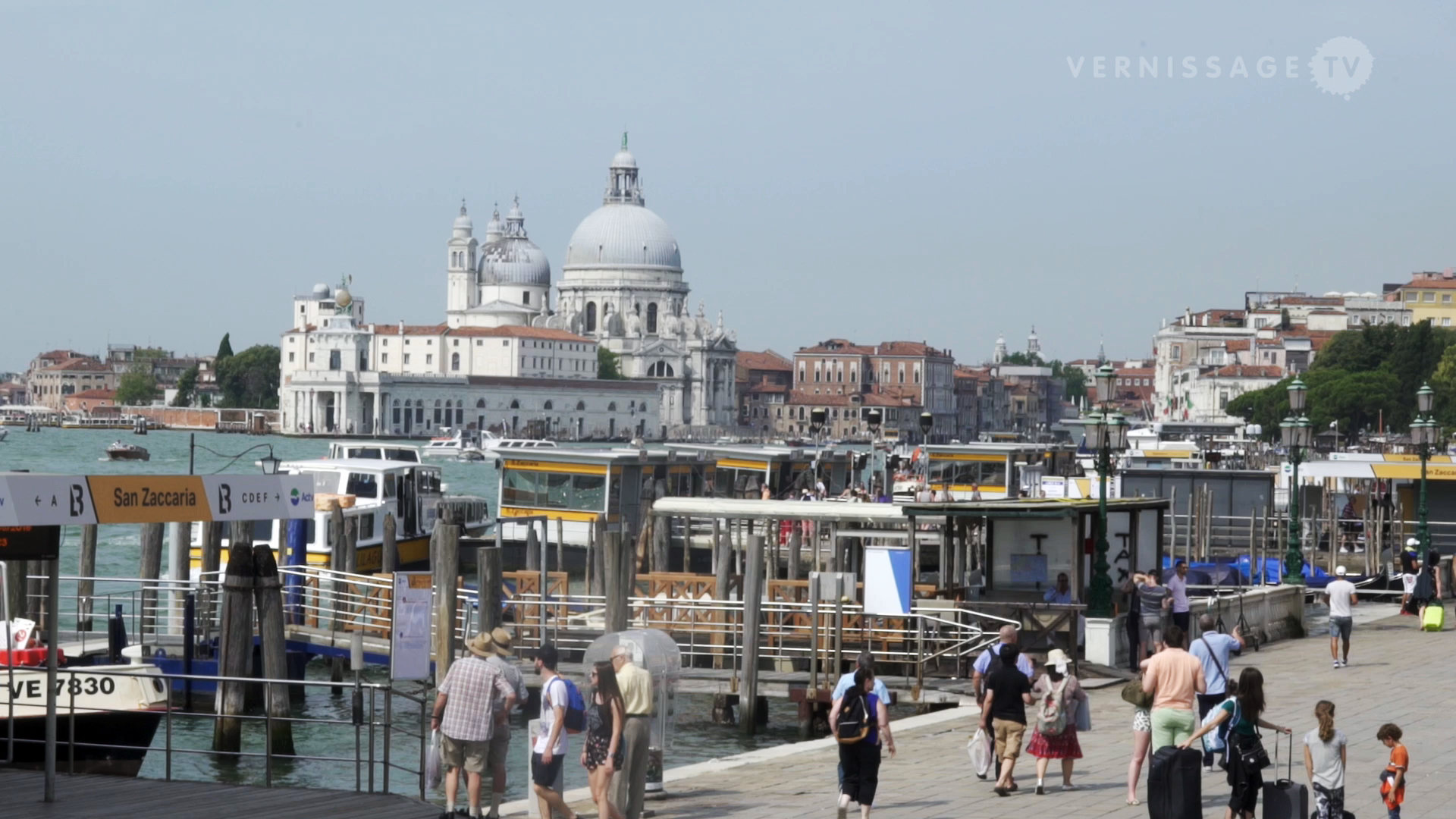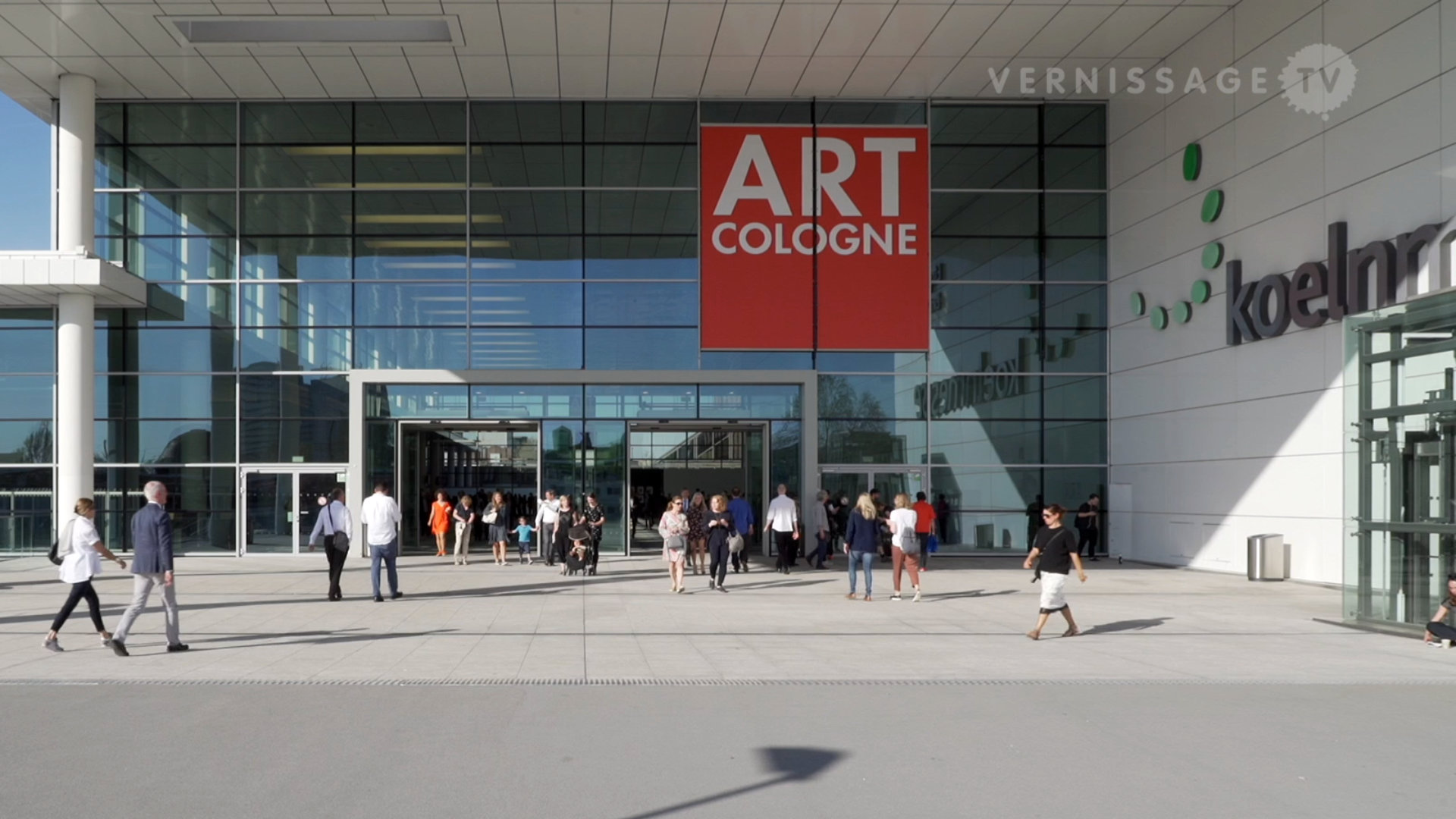The Fridericianum is one of the main exhibition venues of Documenta. This time it’s the place where for the first time the collection of Greece’s National Museum of Contemporary Art (EMST) is presented in Germany. On display are works by the artists Alexis Akrithakis, Nikos Alexiou, Dimitris Alithinos, Stephen Antonakos, Janine Antoni, Eugenia Apostolou, Athanasios Argianas, Manolis Baboussis, Bertille Bak, Lynda Benglis, Chronis Botsoglou, and many others.
Documenta 14 Kassel (Fridericianum): Works from the EMST Collection. Kassel (Germany), June 8, 2017.
> Right-click (Mac: ctrl-click) this link to download Quicktime video file.
Info text:
The exhibition at the Fridericianum marks the first time the collection of Greece’s National Museum of Contemporary Art (EMST) is presented in Germany, through a double displacement that renders EMST’s home, the renovated building of the former Fix brewery in Athens, one of the main venues of documenta 14, and the Fridericianum, traditionally the centerpiece of a documenta exhibition, the temporary home of EMST’s collection. With this collaboration, documenta 14 and EMST strengthen each other’s public engagement, captured in documenta 14’s working title Learning from Athens as well as in the museum’s new annual exhibition series, entitled “EMST in the World.”
EMST began creating its collection in 2000. Its holdings now include more than 1,100 works by Greek and international artists from the 1960s onward. The exhibition at the Fridericianum is an adapted version of the museological study of the EMST collection by the director Katerina Koskina to be inaugurated in Athens in 2017, with the curatorial assistance of Tina Pandi and Stamatis Schizakis, the architectural design of Iro Nikolakea, and the support of all the EMST staff. The artworks that travel to Kassel comment on the complex reality in Greece today and highlight the parallel and international journeys of pioneering Greek artists.
In their transcultural decussation, documenta 14 and EMST engage border crossings, diasporas, and personal and collective memories—including issues of repatriation, or αντιδάνεια (the return of loans)—in a manifestation of the two institutions’ joint commitment to preserving and reinterpreting cultural icons and important artworks. The presentation considers the EMST collection vis-à-vis the history of the Fridericianum, the birthplace of documenta and the first public museum on mainland Europe, offering new histories while challenging prevalent ones. The Fridericianum’s brief tenure as a house of parliament serves as an important connection to the ways some artists represented in the EMST collection have dealt with the difficulty of sustaining democracy during the postwar transformation of Greek and European society, including the years of military dictatorship.
During documenta 14, the Fridericianum’s rotunda hosts the Parliament of Bodies, the exhibition’s Public Programs, ramifying the site’s short term as a house of parliament in the early nineteenth century as it operates as a critical device, queering the ruins of democratic institutions as well as the traditional forms of educational and public programming. In addition, in the basement of the Fridericianum, Ben Russell’s new film project Good Luck (2017) examines the social and global scale of the politics of mineral extraction. It is a study about the communities of workers in an illegal, small-scale gold mine in Suriname and in a state-owned copper mine in Serbia.



